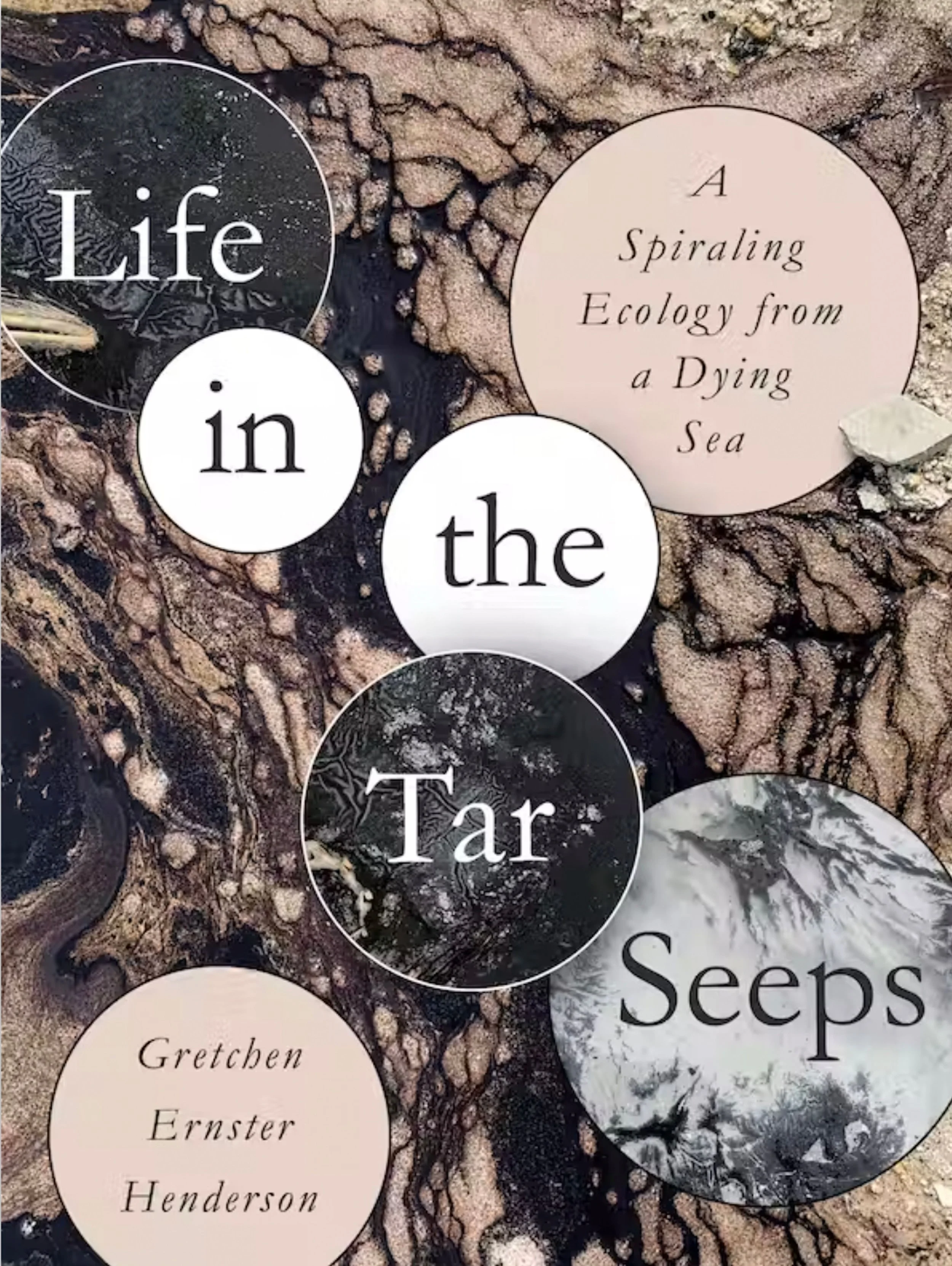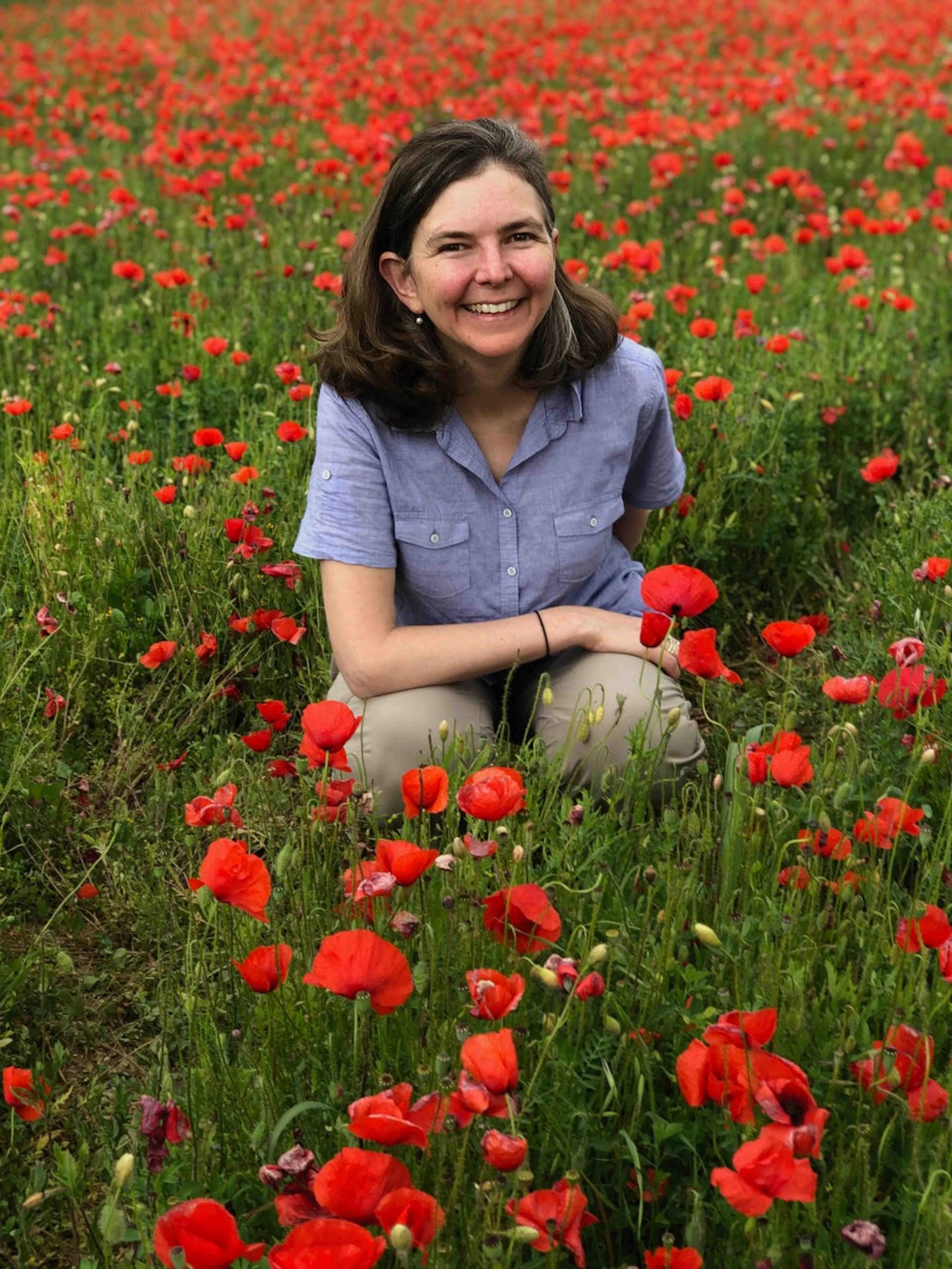We are very proud to present MU alum Gretchen E. Henderson in the shop on Monday, February 5, to discuss her exquisite and important book, Life in the Tar Seeps.
At Great Salt Lake, near Robert Smithson’s iconic earthwork Spiral Jetty, a motley crew of scientists walks the mudflats to study fossils in the making. This reputedly dead sea is home to tar seeps, pools of raw oil (nicknamed ‘death traps’) that act as a preservative, encasing organisms as they were in life.
In this spare landscape, an intricate web of life unfurls. Halophiles―salt-hungry microorganisms―tint the brackish water pink and orange; crystals of gypsum stud the ground, glistening underfoot; and pelicans and other migratory birds stop for a crucial rest. Barn owls and seagulls flirt with their prey around the seeping constellations, sometimes falling prey to the oil themselves.
Gretchen Henderson came to the tar seeps, a kind of natural asphalt, after recovering from being hit by a car as she walked in a crosswalk―a manmade asphalt. Like the spiraling artwork that made Great Salt Lake’s north shore famous, Henderson’s associations of life and death, degeneration and regeneration, and injury and healing coalesced. As she reexamined pressing issues that this delicate area revealed about the climate crisis, her sense of ecology spiraled into other ways of perceiving the lake’s entangled lives. How do we move beyond narrow concepts of wounded and healed, the beautiful and the ugly, to care for ecosystems that evolve over time? How do we confront our vulnerability to recognize kindred dynamics in our living planet? Through shifting lake levels, bird migrations, microbial studies, environmental arts, and cultural histories shaped by indigenous knowledges and colonial legacies, Life in the Tar Seeps contemplates the ways that others have understood this body of water, enlivening more than this region alone. As Henderson witnesses scientists, arts curators, land managers, and students working collaboratively to steward a challenging place, she grows to see the lake not as dead but as a watershed for shifting perceptions of any overlooked place, offering a meditation on environmental healing across the planet.
Gretchen E. Henderson received her Ph.D. in English & Creative Writing from the University of Missouri after receiving her M.F.A. from Columbia University in New York. Her fifth book, Life in the Tar Seeps: A Spiraling Ecology from a Dying Sea (Trinity University Press 2023), is melting across intermedia tributaries, exhibitions, performances, and field practices. Recent publications include Ecotone (Notable in Best American Essays), Orion, Ploughshares, The Kenyon Review, Notre Dame Review, LA+, and many other journals. Her fourth book was translated across five languages, and her additional works include novels, poetry chapbooks, opera libretti, and arts media. Gretchen is the 2023 Aldo & Estella Leopold Writer in Residence in New Mexico and a Lucas Artist Program Fellow in Literary Arts at Montalvo Arts in California; among other awards, she was recently a 2020-2022 Faculty Fellow at UT-Austin’s Humanities Institute, 2022 Fellow at the Women’s International Studies Center in Santa Fe, 2018-2019 Annie Clark Tanner Fellow in Environmental Humanities at the University of Utah, and 2019 Writer-in-Residence at the Jan Michalski Foundation for Writing and Literature in Switzerland. Her work has been supported by the Mellon Foundation, National Endowment for the Humanities, and MIT’s Center for Art, Science & Technology. Currently a Senior Lecturer at the University of Texas at Austin, she has taught widely including at Georgetown University, University of Utah, and M.I.T., and also teaches seasonal workshops at the Oak Spring Garden Foundation in Virginia and the University of Arizona Poetry Center. Born and raised in San Francisco, Gretchen lives seasonally in the biodiverse Sonoran Desert and invites participation in Dear Body of Water: a poetic water-harvesting project to cultivate care for watersheds across the globe.




